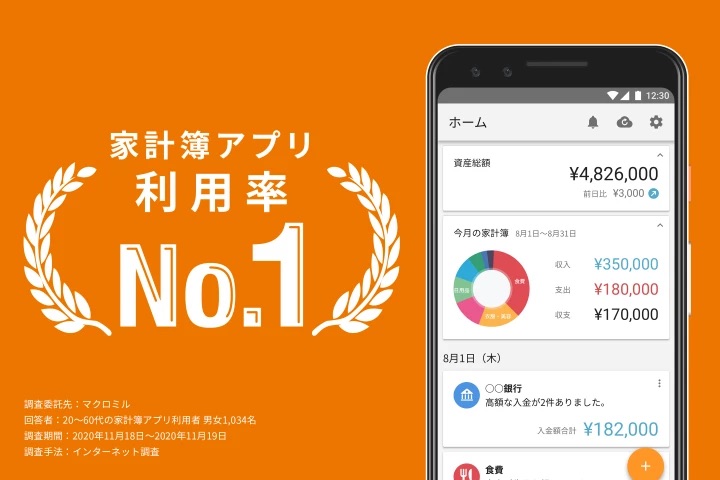When Will You Feel “Stable”? And What Will It Take?
For many of us in our 20s and early 30s, stability looks like the same dream: not worrying about rent, having the freedom to travel, buying what we love without hesitation, being able to support our families, and still saving enough for the future.
But the reality often feels more complex. Between long work hours, unpredictable schedules, and the rising cost of living, that sense of stability can feel far off. We tell ourselves, “I’ll figure it out later,” or we don’t know where to begin.
For young Vietnamese professionals in Japan, this picture feels even sharper - balancing career growth in a competitive market while managing the financial challenges of living abroad.
In today’s fast-moving world, being good at your job is no longer enough. The real game-changer? Starting with a few small but powerful shifts in how you think about and manage your money.
Here are five smart moves that can help you take control of your finances and move closer to the version of stability you’ve always imagined.
1. Save first - don’t wait until the end of the month
It’s easy to fall into the habit of spending first and saving whatever is left. But more often than not, what’s left isn’t much at all. The most effective approach is to treat your savings like rent or a phone bill - a fixed cost that comes out first, not something optional for the end of the month.
Impulse spending, last-minute trips to your favorite shop, or flash sales online can easily derail your budget. That’s why many people swear by the “envelope method”: divide your income at the start of the month into categories like rent, groceries, savings, and investments. Even if you manage your finances digitally, the principle of separating funds remains powerful.
2. Understand insurance and taxes - prepare early, reduce risk
Most people pay attention only to their take-home pay and forget the systems that protect it. In fact, insurance and taxes are more than paperwork; they’re key to your long-term safety and peace of mind.
It’s common to purchase insurance based on what a colleague or friend recommends, without fully understanding what you’re actually covered for. Taxes are often left untouched until issues arise. But both areas demand attention before anything goes wrong. If you suddenly face a health emergency or run into visa-related issues, being financially prepared could make all the difference.

Start by checking your current insurance through your employer or bought on your own: What does it cover? Is there anything missing? When it comes to taxes, set aside time at least once a year to review what you’ve paid and what you might owe. Understanding how your income is taxed and whether you qualify for deductions can make a big difference.
A little effort now can save you a lot of stress later.
3. Keep Your Credit Score Healthy - you’ll thank yourself later
Credit cards, housing loans, and investment tools are part of everyday life now, but they often come with small print that’s easy to overlook. Not fully understanding interest rates, missing payment deadlines, or letting small debts pile up can quietly damage your credit history. And in Japan, that history matters more than many people realize.
A low credit record can make it harder to rent an apartment, since many property managers and guarantor companies use your financial behavior, especially repayment history, as part of their screening process. It can also affect your chances of getting a loan approved, or lead to higher interest rates if banks see signs of past delinquencies. In some cases, it may even influence long-term applications like permanent residency.
So it’s worth starting early. Build healthy habits: pay on time, keep your credit card balances low, and take the time to read and understand your contracts. Check your credit regularly to stay informed. These small steps now can open bigger opportunities down the road.
4. Diversify your income - don’t rely on one job done
Relying solely on one paycheck can feel risky, especially in today’s shifting economic and job market landscape. A recent analysis highlights how adding different revenue sources makes you more resilient during economic shifts or unexpected downturns. By not depending on a single income stream, you’re better equipped to handle disruptions without derailing your financial stability (Source).
You don’t have to become a full-time freelancer to benefit. You can start small: sharing knowledge online, mentoring in your field, exploring micro-investments, or even offering a weekend skill class.
What matters most is building a mindset of independence and a diversified financial safety net. The more skills you develop, the more freedom and confidence you gain.
5. Plan for the long term - start with the smallest steps today
Many of us delay thinking about long-term plans, whether it’s buying a home, supporting our parents, or saving for retirement, because they feel too far away or too big to grasp.
But these goals take years of preparation. Waiting until your 30s or 40s to start is often too late. Instead, start planting the seeds now: understand where your money is going, make intentional investment decisions, and stick to your financial plan with discipline.
Want to retire early or feel financially free by 40? Then at 25, you need to know exactly how your money is working for you.
Stability Doesn’t Have To Be Overwhelming - If You Have The Right Partner

It’s completely normal to feel overwhelmed. One month you manage to save, the next it all seems to vanish. You’re unsure about taxes, haven’t checked your credit in months, and your long-term financial goals still feel like a blurry thought.
And with so many moving parts, such as insurance, taxes, credit scores, side income, savings, it can feel like too much to keep track of, especially when time is limited and life is already filled with other priorities: work deadlines, family, health, even just trying to rest.
We all want stability, but sometimes the word itself becomes a mental weight when everything feels disconnected, and no one ever really showed us how to begin. However, personal finance doesn’t have to be complicated; it’s all about having the right system to bring all the pieces together.
Making “Financial Stability” A Lighter Journey
For young people, especially those living and working in Japan, knowing your full financial picture of how much you earn, spend, owe, and want to build is essential.
And for the growing Vietnamese community here, mastering these skills isn’t just about personal comfort - it’s about building confidence, independence, and a sense of belonging in a new country.
Why? Because your money is all connected. What you do today affects your choices tomorrow. Without a clear view, it’s easy to feel stuck, overwhelmed, or constantly behind.
That’s where Money Forward, Japan’s top personal finance management platform, makes a difference. More than just a budgeting tool, it helps you organize all aspects of your money, including income, savings, investments, taxes, insurance, and credit, into one easy-to-understand dashboard.

With over 16.6 million individual users and more than 370,000 business clients, Money Forward is trusted by people across Japan to take the stress out of financial management. Its mission “Driving users’ life forward” is reflected in how it supports young professionals to build discipline, transparency, and steady progress, one step at a time.
Whether you’re in Vietnam or Japan, having a trusted companion can help you go further in your financial journey. Start by making sense of your monthly numbers, and see how small changes can unlock bigger stability.
With Money Forward, it’s easier than ever to bring clarity to your finances.
For young Vietnamese professionals in Japan, tools like Money Forward are not just about convenience - they’re companions in building confidence, independence, and long-term stability abroad. When each individual takes charge of their money with discipline and smart systems, the whole community becomes stronger.
Together, they add to a bigger story: Vietnam’s rising reputation as a dynamic, trusted partner for innovation and investment. This journey continues at Vietcetera Open Tokyo 2025 in the panel “Vietnam: The Rising Regional Market for Strategic Investment,” where leaders will explore why Vietnam is becoming a strategic destination for Japanese companies and how collaboration can unlock sustainable growth.
Register here for Vietcetera Open - Tokyo, Japan 2025Special thanks to our sponsors & partners for accompanying us in this event:- Title sponsor: FPT Japan- Program Sponsor: Reazon Holdings, Money Forward, & Tokyu Corporation- Engagement Partner: Vilasia- Travel Partner: Vietjet Air- Strategic Partner: Solara & Co- Communications Partner: VANJ - Vietnamese Academic Network in JapanVYSA (Vietnamese Youth and Student Association in Japan)Dong Du overseas student communityOverseas VietnameseFTU Alumni in Japan
